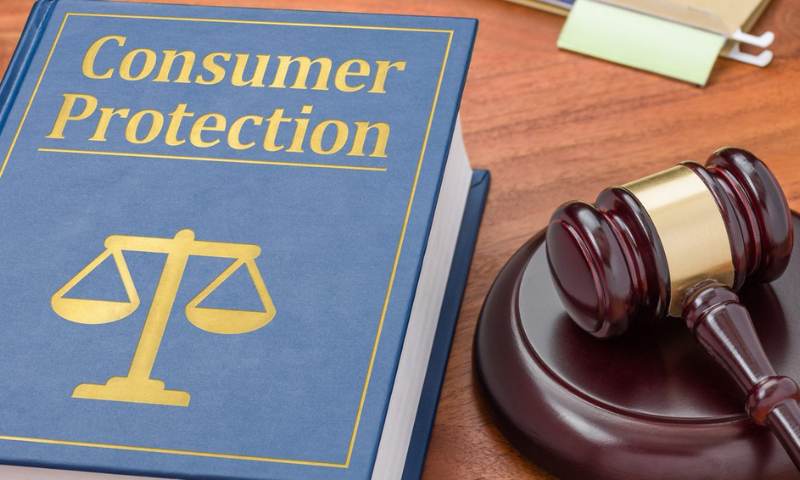How can regulation protect consumers and businesses? It’s the invisible shield we rarely consider, yet it’s vital for tossing the risky darts that target our money and trust. Imagine shopping without a second thought of a product’s safety or sealing a deal with a firm, confident it won’t vanish with your cash. That’s the force of law, folks. It’s not just about rules; it’s about peace of mind. With my expertise, I’ll walk you through how smart rules keep you safe and businesses sharp. Ready to dive in? Let’s go!
The Role of Consumer Protection Regulations
Ensuring Product and Service Safety
Think of safety belts in cars. They keep us safe, right? Consumer protection laws work like safety belts for shopping. These laws make sure products and services won’t hurt us. For example, toys for kids must be safe to play with. They can’t have sharp parts or harmful stuff.
These rules are not just made up. Groups like the Consumer Product Safety Commission check items. They test things to see if they’re safe. If not, they tell everyone and stop sales.
A neat fact is, safe products also help companies. How? Safe products mean happy customers. Happy customers come back for more. Also, fewer accidents mean fewer court cases. This saves companies big money.
Understanding Consumer Rights Policies
Now, let’s chat about your shopping rights. Rights are rules that protect us when buying. They make sure we get what we pay for. A toaster must toast. A phone must call. If not, stores must fix it, swap it, or give your money back.
Another big point is about fair deals. Stores must tell us the truth about what they sell. No hiding the bad stuff. This is part of a rule called transparency. It keeps deals honest. We can trust what we buy.
And guess what? Good trust means more sales. So, companies win too. It’s a win-win. With clear rights, we feel safe to shop. Trust goes up, and so do sales.
These laws on rights and safety are there to shield us. They stop bad surprises after shopping. And they keep businesses on their toes. Everyone does better when the rules are clear and fair.

The Economic Benefits of Business Regulation
Enhancing Corporate Accountability
Business regulations make sure companies act right. They are like rules of a game. They ensure companies care about safety and be honest with customers. When you buy a toy or a toaster, regulations help ensure they are safe to use. Just like rules keep a game fair, regulations keep shopping fair.
These rules keep everyone on the right track. They stop companies from making false claims about what they sell. When companies follow these rules, they build trust with you and me. People then feel better about buying their things.
Some folks worry rules can be too much. But, think about it like a soccer game. Without rules, it would be chaos. The same goes for businesses. Too few rules could harm safety and trust.
The Positive Impact of Legal Compliance on Market Stability
Now, let’s talk about how staying within the law helps the whole market. When all companies follow the same rules, it creates a level playing field. It’s like knowing all players must play by the same rules, it keeps the game fair.
Rules about how money is handled make sure no one is misled or tricked. This reduces nasty surprises like sudden price hikes or hidden fees. When everyone plays fair, the market stays steady. This makes it better for everyone.
Think about building a tower with blocks. If every block is placed right, the tower stays up. But if one block is put wrong, the whole tower might fall. In a market, that one wrong block could be a business not following the law. This could cause trouble for everyone. By following the rules, businesses keep the market strong like a well-built tower.
So when we talk about rules in business, remember they help keep us safe and keep the market stable. They are there for good reason, like referees in sports. They make sure everyone plays fair, and that’s a win for us all.

Maintaining Fairness in Financial Transactions
Protecting Consumers from Fraudulent Practices
Every one of us deals with money matters. It’s part of daily life. So, keeping these deals fair is key. And that’s where consumer protection regulations step in. They are like a shield, making sure you’re not cheated when you buy or spend.
These rules stop scams before they happen. They make sure that what you buy is what you get. No lies. No tricks. If something does go wrong, they help make it right. This way, we all stay safe from those looking to make a quick buck.
Imagine buying a car that turns out to be a lemon. Thanks to these rules, you have ways to fight back. This is protecting consumers from fraud in action. It feels good to know someone’s got your back, right?
The Importance of Industry-Specific Financial Regulations
Let’s talk about different jobs and their tools. Like doctors with stethoscopes, each industry has its own tools. The same goes for rules. Financial regulations are custom tools for finance jobs. Tailor-made to fit just right.
These rules, for example, say banks can’t just lend out all their money. They make sure banks keep enough cash on hand, just in case. We wouldn’t want a bank to run out of money when we need to pay bills. It’s not just sensible, it’s crucial.
Then there’s the stock market. Ever heard of insider trading? It’s a big no-no. Industry-specific rules prevent this, ensuring that all players in the market game play fair. No cheating allowed.
These financial regulations keep businesses honest too. They call for clear records, making sure that money trails are no mystery. This makes our economy tick. It brings trust into the game.
By having crystal clear rules, we all play on a level field. That’s what fairness is about.
Tailored rules also mean better protection. Each industry has its risks. Recognizing this, the rules address those risks head-on. They’re like having the right armor for the right battle.
Think of them like this: We don’t wear flip-flops to hike a mountain. No, we wear sturdy boots. It’s the same with these rules; they fit the job at hand. This fit keeps consumers and businesses out of hot water.
And let’s not forget, these regulations evolve. As the world changes, risks change. So the rules adapt, always aiming to cover your back. That’s why it matters to have industry experts crafting these rules. They know the tools of the trade.
This approach makes sure no one gets the short end of the stick. It means that when we all play by the same rules, the whole team wins.
It’s all about balance. A well-oiled machine where everyone knows the dos and don’ts. It’s good for you, me, and our whole economy. With these rules, we can all breathe easier, knowing fairness is built into the system.

Safeguarding Personal Data and Online Transactions
The Necessity of Cybersecurity in E-commerce
Every time you shop online, you share personal info. Think of your name, address, and credit card. We all want to keep this info safe. But how? This is where cybersecurity in e-commerce comes in. It’s like a shield. It keeps our personal details safe from bad actors who want to steal them.
Businesses also need this shield. They hold customer info that, if stolen, could hurt their rep and cost them big. Cybersecurity helps protect this data. It also helps businesses stay safe online. For them, it’s not just about avoiding loss. It’s about winning customer trust.
So, what makes cybersecurity a must in online shopping? Fraud. Hackers are smart and always looking for a way to get at our info. We need strong security to stop them. Good cybersecurity uses tech and rules to create a safe space. It ensures only the right people can get to sensitive data.
Retailers must follow these rules, too. These rules make sure shoppers can buy without worry. They also help stores stand out as trustworthy places to buy from. Everyone wins with tight cybersecurity. Shoppers feel safe, and businesses thrive.
Data Privacy Rules and Consumer Trust
Can we buy online without fear? Yes, if we have data privacy rules. These rules keep our personal info safe. They make sure businesses can’t just use our info any way they want.
These rules are part of consumer protection laws. They give us rights, like knowing how our data gets used. Companies must tell us this. If they don’t, they can get in big trouble. This is how the law helps us stay safe. It helps us trust shops that follow the rules.
Now, think about why trust is key. If you don’t trust a store, would you shop there? Most likely not. That’s why businesses work hard to earn and keep our trust. Thanks to data privacy rules, we can feel more secure. We know there are lines that no one is allowed to cross with our info.
In short, these rules protect us from having our info misused. They keep businesses in check. And they make sure everyone plays fair. This builds a strong bond of trust between shops and shoppers.
Hence, consumer trust is not just good for us. It benefits businesses, too. It helps them build a base of loyal customers. These people come back and shop more. It’s clear why following data privacy rules is smart for businesses.
To wrap it up, we need these shields. Cybersecurity and data privacy rules keep our online world safe. They also keep it fair. This helps us all shop and sell without fear. It means we can enjoy the ease of online shopping while knowing our data stays ours.
In this post, we’ve covered how rules keep products safe and ensure buyers know their rights. We also looked at how laws make businesses accountable and help markets stay stable. Then, we saw how these rules stop fraud and why financial sectors need strict laws. Lastly, we discussed how personal data and online buys need solid cyber safety and privacy rules.
I think these safeguards are crucial for a fair and thriving economy. They build trust among consumers, which is vital. Remember, smart rules don’t just protect us—they boost business and keep the whole system on track.
Q&A :
How does regulation ensure consumer safety and business integrity?
Regulation plays a crucial role in safeguarding consumer interests by mandating product standards, labeling requirements, and safety checks. It compels businesses to adhere to practices that protect the consumer from harm and deceit. Furthermore, regulation ensures business integrity by enforcing fair trade laws, curbing monopolistic practices, and protecting intellectual property, thus fostering a competitive and trustworthy market environment.
What are the benefits of consumer protection regulations for businesses?
While consumer protection regulations primarily safeguard the interests of the customers, they offer significant advantages to businesses as well. By following these regulations, businesses can enhance their reputation, foster customer loyalty, and reduce the risk of legal disputes and associated costs. Moreover, a regulatory framework can level the playing field by ensuring that all players adhere to the same standards, which can help to prevent unscrupulous competitors from gaining an unfair advantage.
How do regulations encourage fair competition among businesses?
Regulations aimed at promoting fair competition are designed to prevent monopolies, encourage diversity in the marketplace, and avoid price-fixing and other practices that could distort the market. By setting these boundaries, regulations help to create an environment where businesses compete based on the quality and price of their products or services rather than on manipulative practices or market dominance. This not only benefits consumers by providing them with more choices and better prices but also encourages innovation and efficiency among businesses.
In what ways do regulations impact the relationship between consumers and businesses?
Regulations affect the consumer-business relationship by establishing a legal framework within which transactions must occur, thereby creating a baseline of trust. They ensure that businesses are transparent about their products and services, providing consumers with the information they need to make informed choices. They also offer mechanisms for complaint and redress, which give consumers a means of holding businesses accountable. In turn, businesses that comply with regulations can build stronger, more reliable customer bases.
What types of regulations are in place to protect both consumers and businesses?
There are a variety of regulations designed to protect both consumers and businesses, including consumer protection laws, data protection laws, antitrust laws, and industry-specific regulations. Consumer protection laws focus on safeguarding buyers from unfair practices, while data protection regulations secure individuals’ personal information. Antitrust laws are meant to prevent anti-competitive behaviors that can harm other businesses and consumers alike. Industry-specific regulations, such as those in the financial, healthcare, and food industries, set out standards that ensure quality and prevent harm, thus maintaining public trust in those market sectors.



